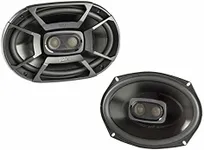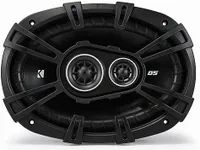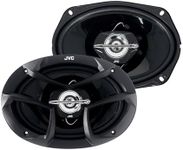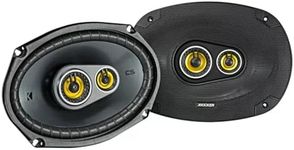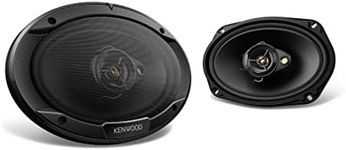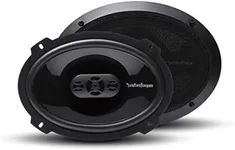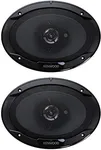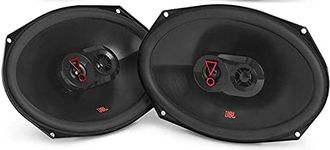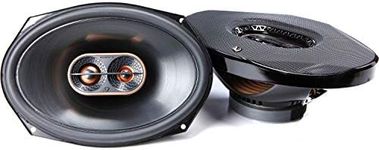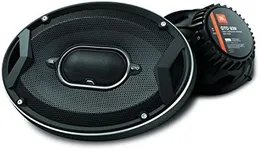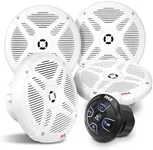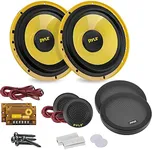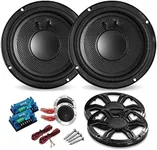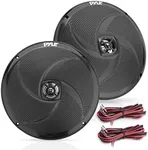Buying Guide for the Best 6 X 9 Car Speakers
Choosing the right 6x9 car speakers can significantly enhance your in-car audio experience. These speakers are popular for their ability to produce a wide range of sound frequencies, making them a great choice for many car audio systems. When selecting the best 6x9 car speakers for your needs, it's important to consider several key specifications. Understanding these specs will help you make an informed decision and ensure that the speakers you choose will meet your audio preferences and fit your vehicle properly.Power HandlingPower handling refers to the amount of power (measured in watts) that a speaker can handle without being damaged. This is important because it determines how loud and clear the speaker can play music. Power handling is usually divided into two values: RMS (continuous power) and Peak (maximum power). RMS is more important as it indicates the power level the speaker can handle on a continuous basis. If you like listening to music at high volumes, look for speakers with higher RMS ratings. For casual listeners, lower RMS ratings may suffice.
SensitivitySensitivity measures how effectively a speaker converts power into sound, indicated in decibels (dB). Higher sensitivity means the speaker can produce more sound from the same amount of power. This is crucial if you have a low-powered car stereo, as high-sensitivity speakers will produce louder sound without requiring a lot of power. If you have a high-powered amplifier, sensitivity is less critical, but higher sensitivity can still provide better sound quality.
Frequency ResponseFrequency response indicates the range of sound frequencies a speaker can reproduce, measured in Hertz (Hz). A wider frequency range means the speaker can produce both deep bass and high treble sounds. For a balanced audio experience, look for speakers with a frequency response that covers the full spectrum of human hearing (20 Hz to 20,000 Hz). If you prefer more bass, focus on speakers with a lower minimum frequency.
ImpedanceImpedance is the resistance a speaker offers to the electrical current from the amplifier, measured in ohms. Most car speakers have an impedance of 4 ohms, which is standard for car audio systems. Matching the impedance of your speakers to your car stereo or amplifier is important for optimal performance. If you have a high-powered amplifier, you might consider speakers with lower impedance for better power handling.
Build Quality and MaterialsThe build quality and materials of the speaker components (such as the cone, surround, and tweeter) affect the durability and sound quality. Common materials for cones include polypropylene, which is durable and provides good sound quality, and more advanced materials like Kevlar or carbon fiber, which offer superior performance. The surround, which allows the cone to move, is often made of rubber for durability. Tweeters made from materials like silk or metal can affect the clarity and detail of high frequencies. Choose speakers with high-quality materials for better sound and longer lifespan.
Coaxial vs. Component Speakers6x9 car speakers come in two main types: coaxial (full-range) and component. Coaxial speakers combine the woofer and tweeter in one unit, making them easier to install and generally more affordable. They are a good choice for most users looking for a straightforward upgrade. Component speakers separate the woofer and tweeter, allowing for better sound quality and customization. They are ideal for audiophiles who want the best possible sound and are willing to invest in a more complex installation.
